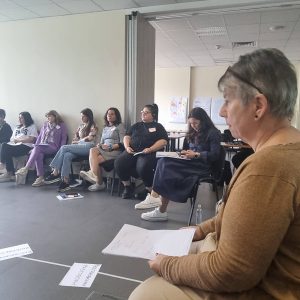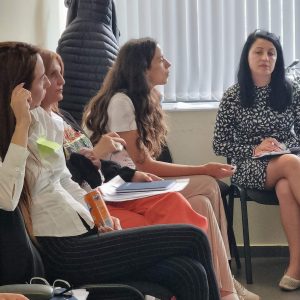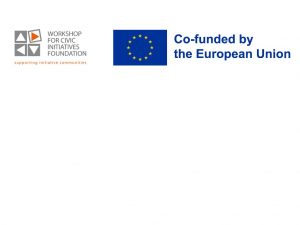The seminar “Restorative Practices in School”, held on 9, 10 and 11 May 2025 by experts from the Partners Bulgaria Foundation, brought together 20 pedagogical advisors, teachers and experts in municipal services from Montana, Varshets, Gotse Delchev and Blagoevgrad. The participants were introduced to the topic through many practical case studies, including from the participants’ own pedagogical experience.
The aim of the training was for educators to become familiar with the continuum of restorative practices and to consider introducing them in their schools. The seminar was led by Eva Deak from the Partners Hungary Foundation, who is a certified trainer from the International Institute for Restorative Practices; Dr. Daniela Kolarova, mediator and Aneta Kalcheva, facilitator from the Partners Bulgaria Foundation. Introducing restorative practices in school offers tools for repairing the damage that has occurred as a result of conflict and wrongdoing.
The focus is on understanding the harms and their root causes, taking shared responsibility for the harms, and engaging in action to repair and prevent future problems. This means that schools make a conscious choice not to implement disciplinary practices that rely on authoritative control, enforcing rules, imposing punishments, and ultimately, expulsion. Tools include both impromptu conversations with those involved in the incident and more formal reactive restorative circles and restorative conferences. Schools that implement punitive and exclusionary measures remove students from their normal learning environment and put them at greater risk of engaging in inappropriate behavior. When a student is suspended or expelled from school, there is a high likelihood that they will permanently drop out of the education system, as well as enter the criminal justice system.
Restorative practices are therefore a valuable model for implementing policies that effectively address misconduct while maintaining the connection of each young person to their learning community and ensuring that everyone feels welcome and accepted as a whole human being. This is not about justifying misconduct, but about finding a way to reach each person, respecting their dignity and the value that each person brings, even in moments when their behavior does not reflect this value. Restorative practices are useful not only as a response to conflicts, incidents and tensions. They are also constructed as informal forms of communication, including impromptu conversations, affective expressions in everyday communication and proactive circles, which maintain a culture of respect, care and inclusion; support the development of a sense of belonging and reduce the likelihood of conflicts and various forms of violence. Ideally, these proactive practices represent 80% of the application of restorative models in school, therefore, the manifestations of misconduct decrease, leading to no more than 20% application of reactive formal methods.




The seminar was held within the framework of the project “Building a Safe School Environment through Restorative Practices”. The project is implemented within the framework of the INSPIRE project: Improving National Support for Prevention, Intervention, and Response to Violence against Children and Empowering Victims and is co-financed by the European Union and the Foundation “Workshop for Civic Initiatives” (WFCI).


